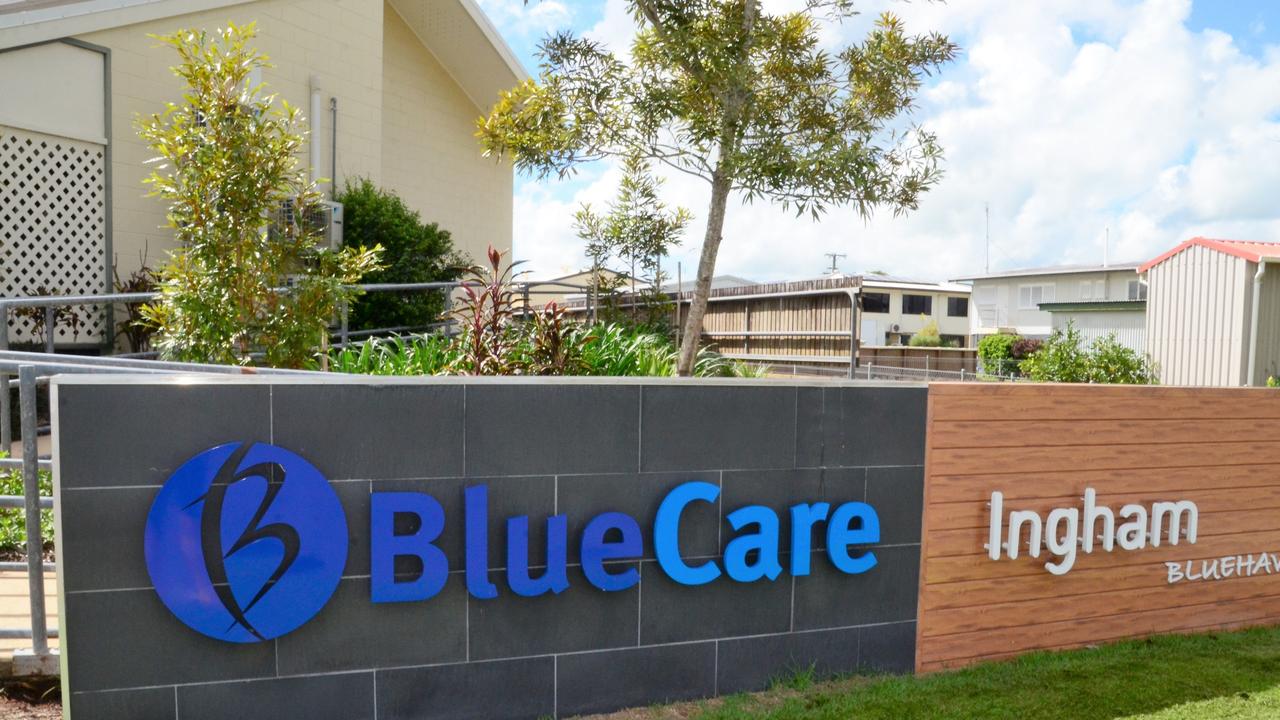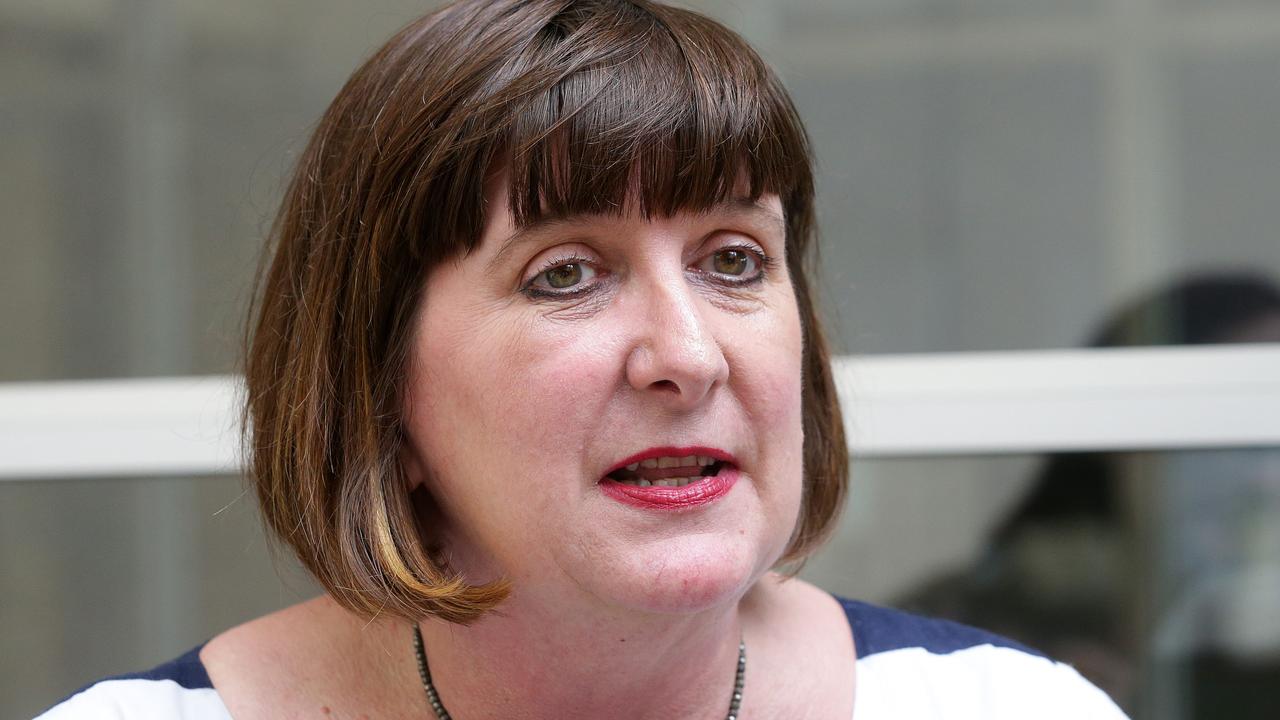Non-profit aged care operators under no obligation to publicly account for how they spend taxes
The state’s largest aged care provider receives more than $460 million in annual Federal Government funding, yet has no obligation to publicly account for how it uses the money or even if it’s spent on caring for the elderly.
QLD News
Don't miss out on the headlines from QLD News. Followed categories will be added to My News.
Queensland’s largest aged care provider receives more than $460 million in annual federal aged care funding, yet has no obligation to publicly account for how it uses the money or even if it’s spent on caring for the elderly, a new report says.
UnitingCare Queensland, the parent company of Blue Care, has been under fire from unions this year for cutting jobs during the coronavirus pandemic, despite an analysis of publicly available financial information and government data finding it started last financial year with more than $250 million in cash deposits.
A 36-page report into nine Australian non-profit aged care providers, compiled by the Centre for International Corporate Tax Accountability and Research (CICTAR), condemns the lack of accountability in residential aged care as “unacceptable”.
BLUE CARE AXING FRONTLINE STAFF: UNION
CORONAVIRUS AUSTRALIA: UNION WARNS OF NURSING SHORTAGES

“The Australian public has no ability to determine whether government funding for residential aged care is being used to provide high quality care of elderly and vulnerable Australians, as intended, or is being siphoned off for other purposes,” it said.
Calling for aged care operators to be required to publicly disclose details of how government funding is spent at a facility level, the report said: “The US government’s Nursing Home Compare website offers one model that includes inspection reports and detailed information on staffing levels by occupation.”
UnitingCare Queensland, which has called on the Federal Government for more money, had a $30.5 million loss last financial year “driven by property investments and not operations”, CICTAR found.
Blue Care, which runs dozens of aged care facilities across Queensland, has hit back saying it “supports greater financial transparency across Australia’s entire aged care sector”.
“Our financial reporting practices comply with all current relevant Australian Accounting Standards and meet our current financial reporting obligations,” it said.
Beyond aged care, UCQ also runs private hospitals and other services.
“In 2019, UCQ’s operational business, seemingly driven by Blue Care, performed well, reporting net cash from operations of over $62 million,” the CICTAR report said.
“The reported loss was driven by a net cash outflow from investing of $90.2 million, including $84.7 million in payments for property, plant and equipment. No further explanation is provided.
“While there is no breakdown of aged care as a business segment, this appears to indicate that aged care revenues more than cover the cost of operations and excess funds are reinvested in expanding the business.”
Queensland Nurses and Midwives’ Union secretary Beth Mohle said the CICTAR analysis had raised “concerning discrepancies” between UCQ’s financial status and its ongoing calls for more public money, identifying more than $250 million in cash deposits.

“UnitingCare Queensland could have used these funds to safely staff Blue Care aged care facilities throughout Queensland,’’ Ms Mohle said.
“Instead, UnitingCare Queensland have opted to cry poor and cut vast numbers of staff during the peak of COVID-19 and since.
“These cuts are hurting elderly Queenslanders as we speak, with distressed staff reporting everything from palliative care residents going unmedicated, elderly Queenslanders lying in soiled beds and experiencing dehydration due to chronic understaffing.’’
Blue Care denies it has slashed staff during the pandemic, claiming most of the “small number” of workers affected by workforce “adjustments” have been successfully redeployed in newly created roles.
“Our net number of aged care employees has not decreased in 2020,” a spokesman said.
But the cuts were reported to the QNMU by Blue Care staff and forwarded to Federal Aged Care Minister Richard Colbeck, the Aged Care Safety and Quality Commission and other government agencies on June 29.
The CICTAR report has been submitted to the Royal Commission into Aged Care Quality and Safety and a Senate inquiry into a Bill to improve financial transparency in aged care.
CICTAR receives funding from the Australian Nursing and Midwifery Federation.
CICTAR principal analyst Jason Ward questioned the need for UCQ to be cutting aged care staff during the pandemic, given its apparent “very healthy financial position”.
“This operator received over $460 million in annual federal aged care funding and over $600 million in total government funding,” he said. “Staffing should not be an issue. Where does the money go?’’
The CICTAR report found another residential aged care operator, Bolton Clarke, which operates 22 aged care facilities in Queensland, has extensive overseas investments.
Mr Ward said there was no way of knowing if taxpayer dollars allocated for the provision of aged care were being spent in Australia or overseas.
The report states Bolton Clarke, which has for-profit investments in Australia and other countries, including aged care in China, received $224 million in federal aged care funding in the 2018-2019 financial year, yet reported a $38.9 million loss, driven by “further property investments”. Despite the reported loss, Bolton Clarke generated nearly $34 million in net cash from operations, mostly from residential aged care.
“Residential aged care operations generated profits that were reinvested,” the report found.
But CICTAR said the for-profit investments in China were “not fully disclosed or accounted for in either audited annual financial reports or in annual reports”.
In a statement, Bolton Clarke CEO Stephen Muggleton said the aged care provider “supported transparency”.
“We are committed to achieving our charitable purpose responsibly and have strong controls in place to safeguard the funds of our not-for-profit organisation,” Mr Muggleton said.
“Our endeavours in China have been at the encouragement of, and in close co-operation with the Commonwealth, Victorian and Queensland Governments to support health exports and share research, models of care and training expertise to improve standards of care for older people internationally.”
The CICTAR report can be viewed at cictar.org.



